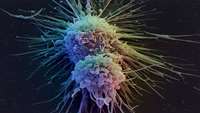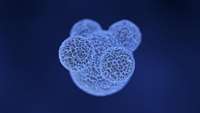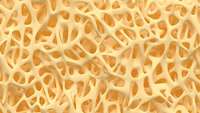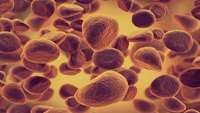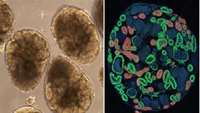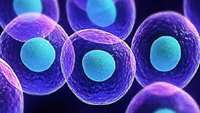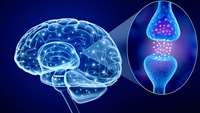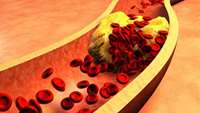Comprehensive pediatric CAR T guidelines developed
Almost one year after the U.S. Food and Drug Administration (FDA) approval of chimeric antigen receptor (CAR) T-cell therapy for children with acute lymphoblastic leukemia (ALL), researchers at The University of Texas MD Anderson Cancer Center and the Pediatric Acute Lung Injury and Sepsis Investigators Network (PALISI) today published treatment guidelines for managing the treatment in the online issue of Nature Reviews Clinical Oncology.
Nowhere to hide: Molecular probe illuminates elusive cancer stem cells in live mice
In a paper published in the journal ACS Central Science, the researchers described the probes effectiveness in identifying cancer stem cells in cultures of multiple human cancer cell lines as well as in live mice.
Three- dimensional printed implants shown to help grow real bone
Chemically coated, ceramic implants successfully guided the regrowth of missing bone in lab animals while "steadily dissolving," researchers report.
Regulation of the Hoxb gene cluster maintains blood-forming cells and inhibits leukemia
Scientists have known for decades that the Hox family of transcription factors are key regulators in the formation of blood cells and the development of leukemia.
Growing kidney tissue simpler and faster will help fight disease
New treatments for kidney diseases and inherited kidney disorders could result from new research that is revolutionising the way human kidney tissue is grown from stem cells.
Microfluidic system incorporates neuroinflammation into Alzheimers in a dish model
Building on their development of the first culture system to replicate fully the pathology behind Alzheimers disease, a Massachusetts General Hospital (MGH) research team has now produced a system that includes neuroinflammation, the key biological response that leads to the death of brain cells
Humans have 10 Times more blood-making Stem Cells than Previously Thought
Adult humans have many more blood-creating stem cells in their bone marrow than previously thought, ranging between 50,000 and 200,000 stem cells. Researchers from the Wellcome Sanger Institute and Wellcome – MRC Cambridge Stem Cell Institute developed a new approach for studying stem cells, based on methods used in ecology.
Artificial placenta created in the laboratory
In order to better understand important biological membranes, it is necessary to explore new methods. Researchers at Vienna University of Technology (Vienna) have succeeded in creating an artificial placental barrier on a chip, using a high-resolution 3-D printing process.
Japan human trial tests iPS cell treatment for Parkinsons
Japanese researchers on Monday announced the first human trial using a kind of stem cell to treat Parkinsons disease, building on earlier animal trials.
Genome editing reduces cholesterol in large animal model, laying human trial groundwork
Using genome editing to inactivate a protein called PCSK9 effectively reduces cholesterol levels in rhesus macaques, a species of monkey, according to researchers from the Perelman School of Medicine at the University of Pennsylvania.


